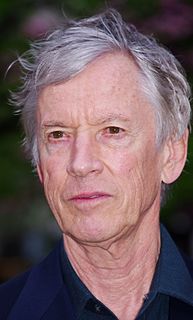A Quote by Denis Diderot
At an early age I sucked up the milk of Homer, Virgil, Horace, Terence, Anacreon, Plato and Euripides, diluted with that of Moses and the prophets.
Related Quotes
All the poets are indebted more or less to those who have gone before them; even Homer's originality has been questioned, and Virgil owes almost as much to Theocritus, in his Pastorals, as to Homer, in his Heroics; and if our own countryman, Milton, has soared above both Homer and Virgil, it is because he has stolen some feathers from their wings.
One way or another, I think virtually all of the prophets and early Apostles had their visionary moments of our time--a view that gave them courage in their own less successful eras. Those early brethren knew an amazing amount about us. Prophets such as Moses, Nephi, and the brother of Jared saw the latter days in tremendously detailed vision. Some of what they saw wasn't pleasing, but surely all those earlier generations took heart from knowing that there would finally be one dispensation that would not fail.
I walk out into a nature such as the old prophets and poets Menu, Moses, Homer, Chaucer, walked in. You may name it America, but it is not America. Neither Americus Vespucius, nor Columbus, nor the rest were the discoverers of it. There is a truer account of it in Mythology than in any history of America so called that I have seen.
Damon Lindelof said, "There are three kinds of prophets - crazy people, like the Guilty Remnant, false prophets, who just want money, sexy and power and use that to get it, and real prophets - and you're a real prophet in 'The Leftovers'. The voices that speak to you never tell you a lie." And I said, "Name me some real prophets." He said, "Buddha, Jesus and Muhammad." I said, "Which one am I?" And he said, "None of them. You're probably closer to Moses than anyone."
There have been many men who left behind them that which hundreds of years have not worn out. The earth has Socrates and Plato to this day. The world is richer yet by Moses and the old prophets than by the wisest statesmen. We are indebted to the past. We stand in the greatness of ages that are gone rather than in that of our own. But of how many of us shall it be said that, being dead, we yet speak?
Whatever the poets pretend, it is plain they give immortality to none but themselves; it is Homer and Virgil we reverence and admire, not Achilles or Aeneas. With historians it is quite the contrary; our thoughts are taken up with the actions, persons, and events we read, and we little regard the authors.




































